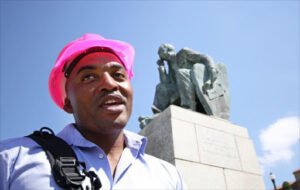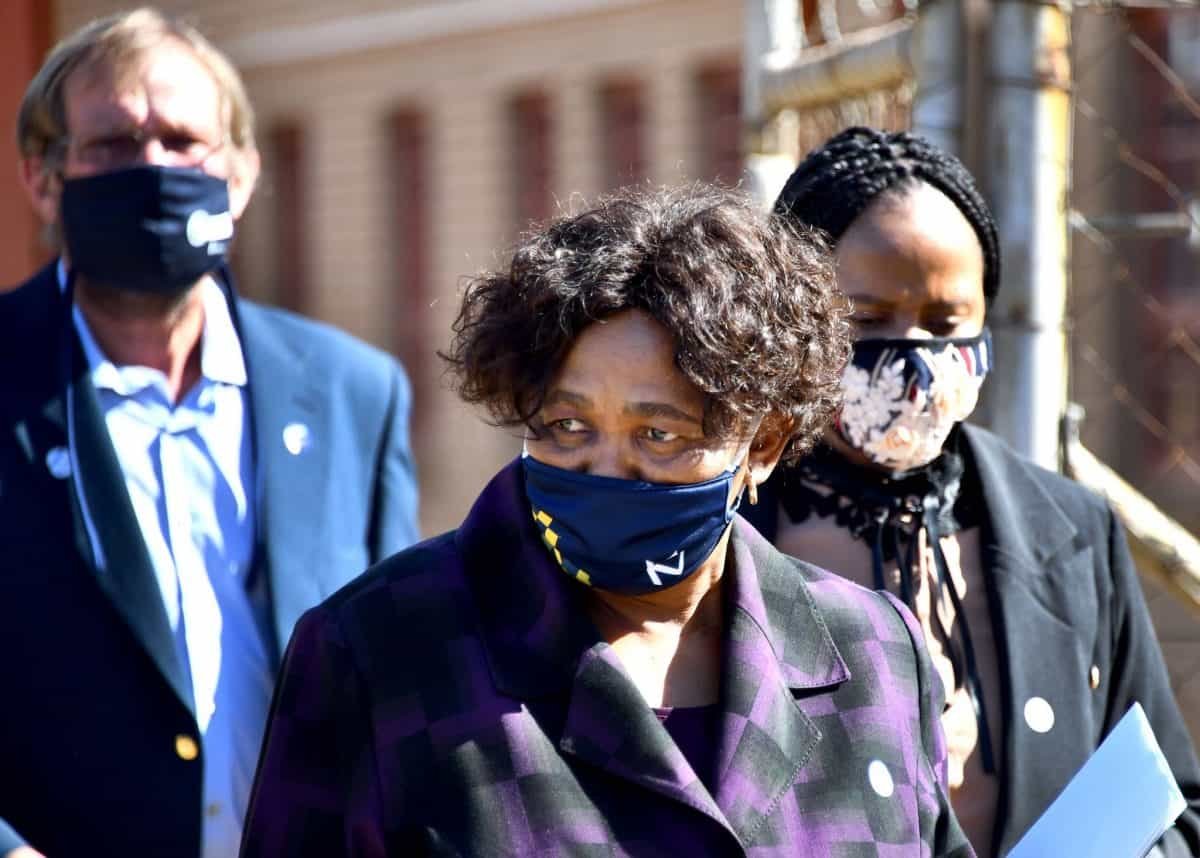South Africa has a rich history, including accomplishments, challenges, happiness, and sadness. Every day is an opportunity to discover a new story. Today, on March 9, we will begin a journey to explore the events on this particular date.

2015: Chumani Maxwele ignites the #RhodesMustFall Movement at UCT
On March 9, 2015, Chumani Maxwele threw human excrement at a statue of Cecil John Rhodes that was situated on the campus of the University of Cape Town, on Rugby Road. This action became a catalyst for heightening student activism and movements throughout universities in the country, stimulating political discourse within South Africa as well as around the world. Maxwele’s protest staged as a political performance, was in response to the lack of attention given to the symbols on campus that are physical reminders of white supremacy and black subjugation and oppression that are rooted in South Africa. By taking human excrement from Khayelitsha, his action sought to make a connection with the lack of human dignity given to black people living in townships. Dressed in running shoes and tights, a pink construction hat, and carrying a whistle, a drum, and a placard reading “Exhibit White @ Arrogance U.C.T.”, Maxwele’s performance was a radical protest against UCT’s purported institutional racism and an appraisal of the lack of transformation on campus. By midday, Maxwell was joined by other students, resulting in the birth of #RhodesMustFall.
1998: Robert McBride is arrested in Mozambique
Robert McBride, a high-ranking South African official, was arrested in Mozambique on allegations of gun smuggling. His arrest fueled suspicions of his involvement in the illegal arms trade, and some believed he was buying arms for the East Timorese guerrilla movement or smuggling arms to former ANC guerrillas. The South African government sent a delegation to Mozambique to discuss the situation and pledged cooperation in dealing with the case.
1998: COSATU withdraws from parliamentary session on budget
The Congress of South African Trade Unions (COSATU) walked out of a parliamentary budget session on the grounds that its view was being ignored. COSATU demanded a people’s budget based on expansionary economic policies to promote growth and create jobs. Opposition parties also raised their discontent. The Democratic Party claimed that the budget provided high taxes, which would hamper job creation and economic growth.
1990: ANC denies responsibility for the unrest in homelands
On this day in 1990, the African National Congress (ANC) veteran leader, Walter Sisulu, denied allegations levelled at his party by the South African parliament and press that the ANC was responsible for the unrest that broke out throughout South Africa. Sisulu described the unrest as consisting of a popular revolt against the homeland’s repressive dictatorships. The unrest broke out after a demand by the ANC that all homelands should be reintegrated into South Africa as part of the dismantling of Apartheid legislation. In Bophuthatswana, 14 people were killed, after police shot at demonstrators who were in favour of the relocation of their homeland and calling for the abdication of President Lucas Mangope.
1980: P.W. Botha announces that all South Africans will take part in a constitutional conference
In 1984, P.W. Botha became President of South Africa after abolishing the position of Prime Minister a year earlier. In 1980, he announced a constitutional conference with a trichameral parliament, which excluded equal representation for the majority black population. They were only given a sham form of self-governance in the homelands.
1951: Helen Zille is born in Johannesburg
Helen Zille is a South African politician and journalist. She studied at the University of the Witwatersrand and became famous for exposing the real circumstances behind the death of Black Consciousness Movement leader Steve Biko. Zille joined the Democratic Alliance in the 1990s and served as a member of parliament and mayor of the Western Cape. She was elected leader of the DA in 2007, a position she held until 2015.
1917: South African House of Assembly pays tribute to the SS Mendi
On February 21, 1917, the SS Mendi troopship sank, resulting in 616 South Africans losing their lives, 607 of whom were black men serving in the South African Native Labour Contingent. On March 9, 1917, the South African House of Assembly rose as a symbol of respect for the fallen troops of the SS Mendi. The House made a sincere expression of sympathy to the relatives of the deceased officers, non-commissioned officers, and natives in their mourning.
1816: Slachter’s Nek rebels are hanged
In 1815, tensions between the British and Dutch were high in the Cape Colony. After an Afrikaner farmer, Frederik Bezuidenhout, was prosecuted by the British, his brother Hans and neighbor Hendrik Prinsloo organized a rebellion against the British colonial power, which was quickly quashed. Five rebels were sentenced to be hanged, but four of the ropes broke, leading to a brutal execution that caused bitterness among the farmers and was mentioned as a cause of the Great Trek (1835-1846).



